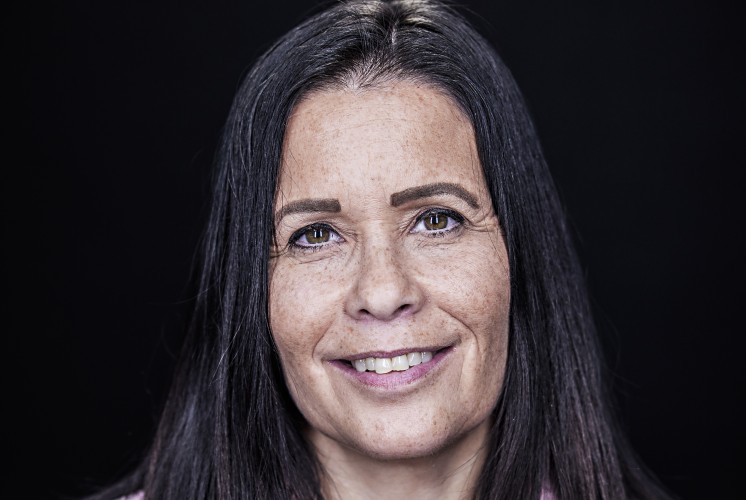DFJ: Talk to us a little bit about the fees and fines that accrued during the time Lance was in the system.
LYNN: The fees were the last thing on my mind. He has encountered several fees. Our family has encountered several fees. I feel like sometimes, the community or system thinks that they're just hurting the person that's incarcerated. They're actually hurting the entire family and the generation after that. I feel the system is punishing the family when we're already being punished. And I understand the importance of restitution, but I think restitution needs to be thought of in a different manner.
I just want him to have that connection and to remain that kind. You know, he went in at 17. I don't want him to come out at 29 and still be 17 in his mind. So it's really important to me that he has that connection with his family and his brothers. The fees are another stab at you every time you have to pay, make a payment or pay them back, or every time the bill comes, you just throw it in the fireplace because it's literally just demeaning. It reminds you that you are a worthless parent, and that your kid is nothing. He doesn't mean anything except for how to get money for the system.
DFJ: How much do you think in total you've had to, or are you still paying friends
LYNN: I’m not paying any more fines and fees. Those were paid in full last year. If you think about it, in the past eight years, paying $250 a month, I can't even do the math. I don't even wanna do the math because I feel like that's so much money that could have been used in a more positive manner, like feeding my kids.
It just feels like the system is constantly draining me. I feel like you're just being constantly drained and broken apart. Like they don't want you to be a family. They don't want you, your son, to be a productive member of society. They don't want him to learn how to build relationships and be strong and learn how to cope. They just wanna continue to tear and break you down. And the fastest way to do that is to take resources away that impact your basic living, your food, and your shelter.
DFJ: Just a quick math, at the minimum, you paid 24,000?
Lynn: Yes. At the minimum, my family, with the help of my parents, paid $24,000 to the system. And that's fees that the state said that we were required to pay them back. That doesn't include restitution.
DFJ: How is Lance now?
LYNN: Lance is overall doing well. He tells me, “Mom, I'm gonna be okay,” and “It is what it is,” and “I'm just gonna keep moving forward.” He reads about a book every two days, and he has relationships with his siblings and his nieces and nephews. So I would say that he's doing well.
DFJ: What do you say to people who say actions have consequences?
LYNN: I think when I hear people say those words, like “lock 'em up and throw away the key,” and “where are their parents,” they don't know the situation. I have to put boundaries up about reading comments about that and really having those conversations because they don't understand unless they've gone through it. I believe there should be consequences, but I believe that if we want our children and our neighbors' kids–if we want our community to be safe–we have to give them the tools to heal and to grow.
If we don't give them the tools to heal, then how can we expect them to be rehabilitated and enter back into the community? Now you've caused not only trauma to that young person that's incarcerated, but now you've impacted their whole family, um, and then the community you've impacted where the children go to school. I don't know the answer, and I don't think there is one answer about the consequences of actions. I think that we need to look and remind ourselves that these are children and ask ourselves how do we prevent this from happening to another family. Look for understanding instead of blaming and just assuming that they're a monster because they're not monsters. They made a decision, and it may not have been the best decision. And sometimes, people get hurt, and in my case, another person loses their life.
The victim's grandma, and my dad, and myself, and the victim's mom, they didn't want Lance to go away for all that time. They met us, and they understood that it was a mistake and their son lost their life, and they sat on Lance's side of the courtroom when he was being sentenced, asking the prosecutor not to send Lance away. I think healing and love and understanding that we make mistakes and how do we prevent it from happening again, and how do we understand why it happened in the first place instead of just judging people and throwing away the key.
DFJ: What does Debt Free Justice mean to you?
LYNN: Debt Free Justice means to me that I won't have to be impacted for the rest of my life, nor will my son have to be impacted for the rest of his life based on one single mistake.
